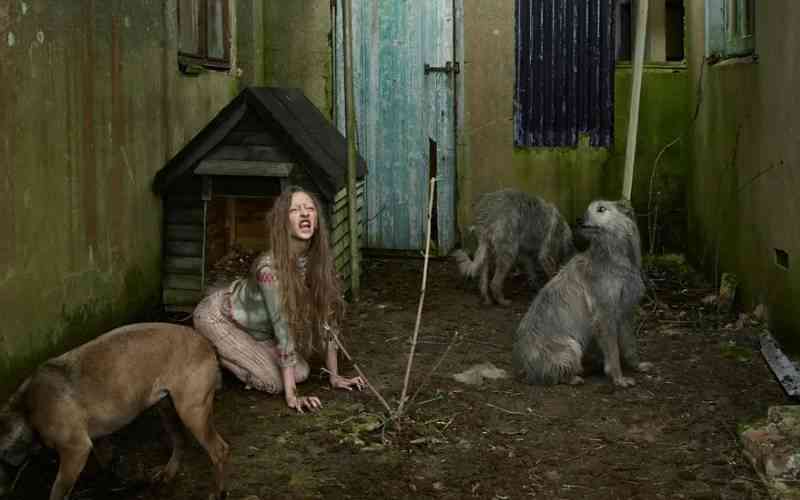
In a remote Ukrainian village in 1983, a girl named Oxana Malaya was born into a life far from ordinary. From the very beginning, her life was marked by tragedy and abandonment.
At just three years old, Oxana’s parents — trapped in the grip of alcohol addiction — neglected her, leaving her to survive on her own.
With no one to care for her, the little girl found refuge in the unlikeliest of places: a dog kennel behind her family's home.
According to a BBC documentary, Oxana lived alongside dogs for more than five years.
In a desperate attempt to survive, she adopted their habits, mimicked their behavior, and fully adapted to their world. She crawled on all fours, barked, growled, and even breathed like a dog. Her only form of communication became the language of animals — not humans.
It wasn’t until 1991, when she was eight years old, that Ukrainian authorities discovered her. By then, Oxana had lost all understanding of human communication. She couldn’t speak, relate to people, or engage in human social behavior.
Doctors were stunned by her powerful sense of smell and hearing, but also found she had suffered severe mental and emotional damage. The lack of human interaction during the critical years of brain development had deeply affected her intellect and emotional growth.
After her rescue, Oxana was placed in a special care center for children with special needs. There, she was slowly taught how to speak and live like a human. The journey was long and difficult. Though she began to understand language and adopt basic human behavior, some of her canine instincts never left. She would still crawl, sleep under beds, and scratch at doors.
Today, Oxana lives in a caregiving facility in Odessa, Ukraine. She has built a quiet, peaceful life and works on a farm that supports people with special needs — people like her. Though her childhood was marred by isolation and unimaginable circumstances, she now lives with structure, calm, and purpose.
Oxana Malaya’s story is one of the most well-known modern cases of a “feral child” — a child raised without human contact. Documented by psychologists, journalists, and human rights advocates, her case serves as a powerful reminder of the human spirit’s resilience and the critical role that love, care, and human connection play in a child’s development.







